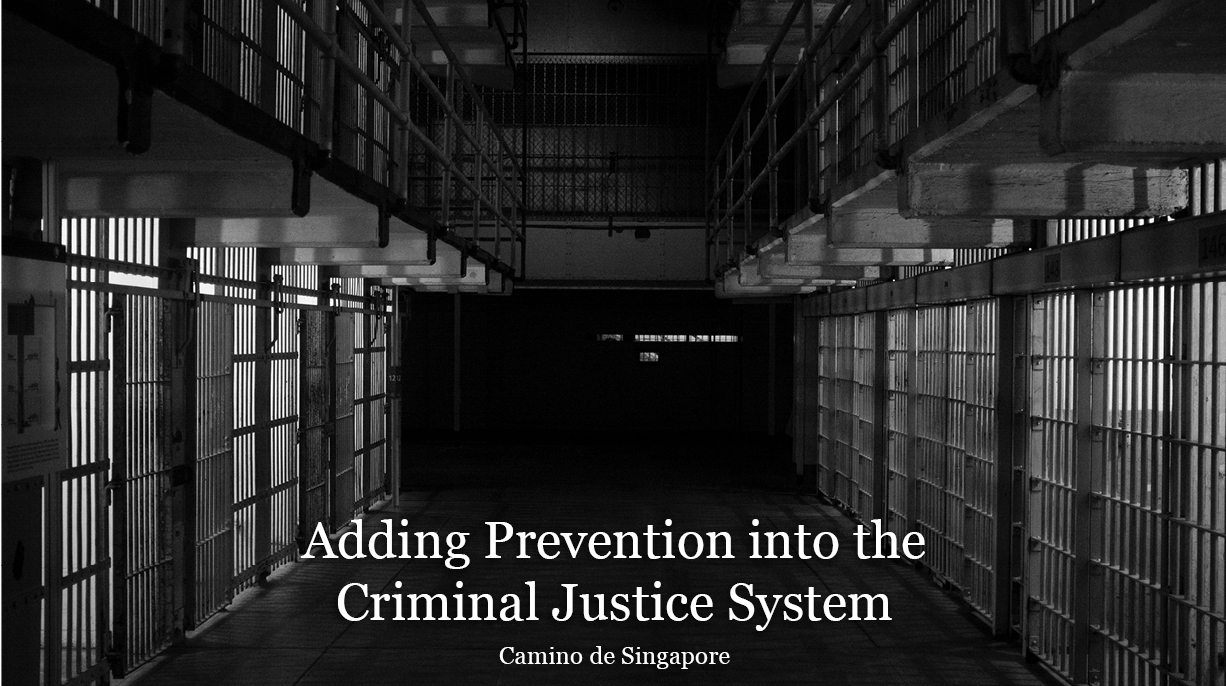No products in the cart.

Photo by https://unsplash.com/@emilianobar
Recently, there has been an increasing interest in the criminal justice system, especially with regard to the well-being of the convicted criminals. I consider this a progress in our society when we begin to look beyond the crimes committed by these human individuals, towards how they can be rehabilitated and assimilated into the society. That said, I think we can go further. I think we should also look at the step before the criminal justice system kicks in, which is prevention.
Now, does the Catholic Church have anything to say about this? How might this look like? Can we learn anything from the Church on this current issue? Let us reflect further on these.
Catholic Social Teaching
St Gregory the Great wrote, “When we attend to the needs of those in want, we give them what is theirs, not ours. More than performing works of mercy, we are paying a debt of justice.” (CSDC, 184)
In short, the great saint was talking about giving our neighbour their due. This is one of my favorite quotes because it teaches us that there is a theological difference between justice and mercy when it comes to attending to the needs of the vulnerable. Both justice and mercy are needed and they have different roles to play in the Church’s social mission.
Applying this understanding to the case of convicted offenders or any other vulnerable persons in the criminal justice system, bolstering the system is more than just ensuring they have a fair trial. It is also about upstream intervention — implementing measures to enable them to achieve social mobility and escape poverty so that they would not make poor decisions such as committing an offence.
How Upstream Intervention Looks Like
What are the support schemes available for a low-income individual with borderline intellectual functioning? From birth, the child could undergo early intervention programmes to address developmental needs. Parents or caregivers could also receive caregiver support, including financial assistance and caregiver training. During the child’s school-going years, the child could apply for reasonable accommodations to ensure access to education. Then, as they develop into adults, they could receive employment support to ensure they are able to find and secure a living wage.
Presently, there is no publicly available longitudinal research on the effectiveness of these interventions in empowering an individual to move out of poverty. However, these measures are a good start. The Ministry of Social and Family Development is working on a new Enabling Masterplan to guide such efforts, including services for persons with disabilities at all life stages, for the next eight years. The report may provide deeper insights on the service gaps for this need group.
In the meantime, as a fellow church friend, healthcare worker, social worker, or educator, we can do our part by identifying and referring these individuals to these services. This is our responsibility. As St Gregory wrote, “More than performing works of mercy, we arepaying a debt of justice.” To translate the Latin of his day into contemporary English, it is probably better to say that we are merely paying a debt of justice.
For information on disability services, please contact SG Enable at 1800-8585-885.
Related News
- Better education and training for inmates among proposed changes to Prisons Act (The Straits Times, 1 November 2021)
- S’pore public to weigh in on rehabilitation of ex-offenders during 3-day virtual summit (The Straits Times, 13 July 2021)
- How poverty tends to trap people into making poor decisions (Channel NewsAsia, 25 November 2018)
Jorain Ng is a daughter, sister, and a Social Worker at Caritas Singapore. She has a habit of randomly sharing her reflections and takeaways from books and articles with her family and friends.
